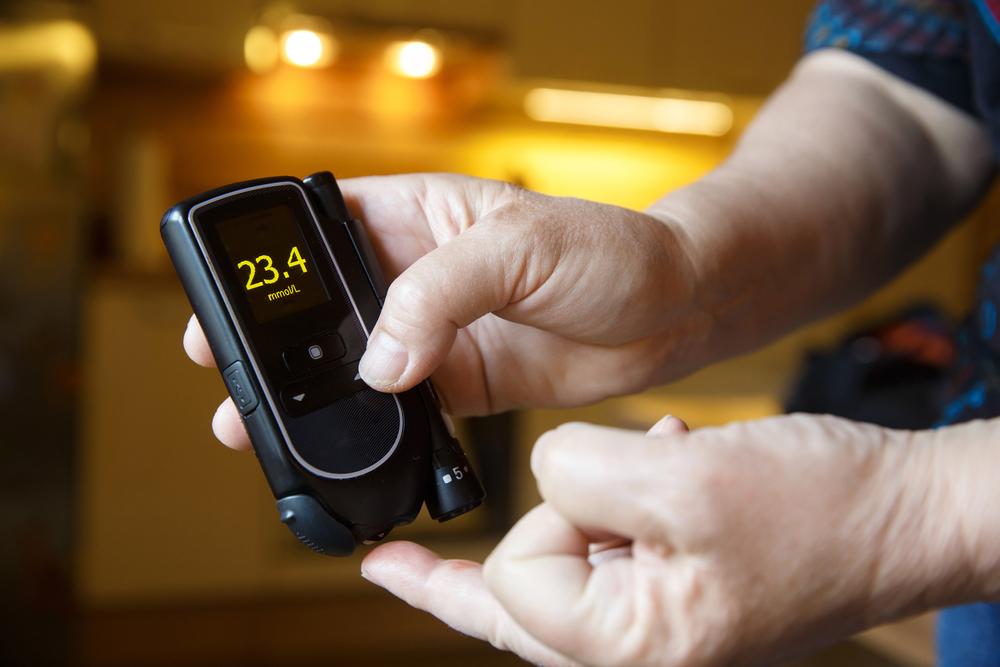Comprehensive Guide: 7 Proven Strategies to Effectively Manage Diabetes
Discover comprehensive strategies to better manage diabetes through diet, foot care, weight control, and lifestyle adjustments. Learn actionable tips to control blood sugar levels, prevent complications, and improve overall health. This detailed guide empowers diabetics to take charge of their health with practical advice and expert insights, leading to a healthier, more active life.

7 Proven Methods to Optimize Your Diabetes Management and Improve Quality of Life
Diabetes is a chronic condition that affects millions of people worldwide across different age groups. It is primarily characterized by elevated blood sugar levels resulting from insufficient insulin production or the body's inability to effectively use insulin. Managing diabetes requires a multifaceted approach that includes lifestyle modifications, dietary adjustments, and ongoing monitoring. Proper management can significantly reduce the risk of complications such as cardiovascular disease, neuropathy, and kidney issues, and help individuals lead healthier, more active lives. In this comprehensive article, we will delve into seven essential strategies that can help you gain better control over your diabetes, enhance your well-being, and boost your overall health outcomes.
Understanding the Role of Diet in Diabetes Control
The foundation of effective diabetes management begins with dietary choices. Food impacts blood sugar levels significantly, and maintaining a balanced diet helps prevent spikes and crashes. Here are crucial dietary guidelines to keep in mind:
Limit Refined and Processed Carbohydrates: Foods such as refined white bread, white rice, and sugary cereals lack fiber and nutrients, causing rapid increases in blood glucose levels. Instead, opt for whole grains like oats, whole wheat bread, and brown rice that release glucose slowly, helping maintain stable blood sugar levels.
Incorporate High-Fiber Foods: Dietary fiber slows down sugar absorption and improves insulin sensitivity. Include plenty of vegetables, legumes, nuts, seeds, and fruits with low glycemic indexes to promote metabolic health.
Reduce Added Sugars and Sugary Snacks: Minimize consumption of sweets, candies, desserts, and sweetened beverages. These contribute to insulin resistance and can make blood sugar control challenging.
Choose Healthy Fats: Emphasize consumption of monounsaturated and polyunsaturated fats found in olive oil, avocado, nuts, and fish. These fats support heart health, which is crucial since diabetics are at increased risk of cardiovascular disease.
Control Portion Sizes and Meal Timing: Eating regular, balanced meals and snacks helps prevent extreme fluctuations in blood glucose. Consider working with a dietitian to develop a personalized meal plan tailored to your needs.
Essential Foot Care for Diabetics
Foot health is often overlooked but is vital for individuals with diabetes. Nerve damage and poor circulation can lead to serious foot complications. Implementing proper foot care routines can prevent infections and other issues:
Daily Foot Inspection: Examine your feet daily for redness, blisters, cuts, swelling, or nicks. Prompt detection allows early intervention.
Keep Feet Clean and Moisturized: Wash your feet daily using warm water, then gently pat dry. Apply a moisturizer to prevent cracking, but avoid applying lotion between toes to prevent fungal growth.
Proper Footwear: Wear comfortable, well-fitting shoes that do not cause friction or pressure spots. Consider consulting a podiatrist for custom orthotics if necessary.
Avoid Walking Barefoot: Always wear shoes or slippers, even indoors, to reduce injury risk.
Seek Medical Advice: Regular check-ups with a healthcare provider or podiatrist help monitor foot health and address issues promptly.
Importance of Maintaining a Healthy Weight
Weight management plays a crucial role in controlling blood sugar levels and reducing the severity of diabetes. Even modest weight loss can lead to significant health benefits, including improved insulin sensitivity and decreased medication requirements. Key strategies include:
Balanced Diet: Focus on consuming nutrient-dense foods rich in fiber, lean proteins, and healthy fats. Limit intake of refined carbs and saturated fats.
Regular Physical Activity: Aim for at least 150 minutes of moderate aerobic exercise per week, such as brisk walking, swimming, or cycling. Incorporate strength training exercises to build muscle mass, which enhances glucose uptake.
Monitoring and Goal Setting: Regularly track your weight and blood sugar levels. Set realistic goals with your healthcare team and adjust your plan accordingly.
Reduce Sedentary Behavior: Limit prolonged periods of sitting. Incorporate movement into your daily routine, such as short walks or stretching breaks.
Blood Sugar Monitoring and Medication Adherence
Consistent monitoring of blood glucose levels provides critical insights into how your lifestyle and medications are impacting your health. Use a glucometer as recommended by your healthcare provider to track readings regularly. This data helps in making informed decisions about dietary choices, physical activity, and medication adjustments.
Adherence to prescribed medication regimens is equally important. Do not skip doses or alter medication without consulting your doctor. Consistent management ensures that blood sugar levels remain within target ranges, reducing the risk of complications and improving long-term prognosis.
Additional Tips for Effective Diabetes Management
Psychological Readiness: Prepare mentally to face the challenges posed by diabetes. Seek support from family, friends, or support groups.
Stress Management: Practice stress-reduction techniques such as meditation, deep breathing, yoga, or hobbies to lower cortisol levels, which can affect blood sugar.
Avoid Harmful Habits: Do not smoke or consume excessive alcohol, as both can worsen control and increase health risks.
Education and Awareness: Stay informed about diabetes management strategies by consulting healthcare providers, attending workshops, or reading reputable sources.
Regular Medical Checkups: Routine visits enable early detection of potential complications like eye problems, kidney issues, or cardiovascular concerns.
Effective diabetes management is an ongoing process that requires dedication, informed decision-making, and collaboration with healthcare professionals. Embracing these strategies can help you maintain optimal health, prevent complications, and enjoy a better quality of life. Stay connected with trusted health information sources and become an active participant in your healthcare journey.





